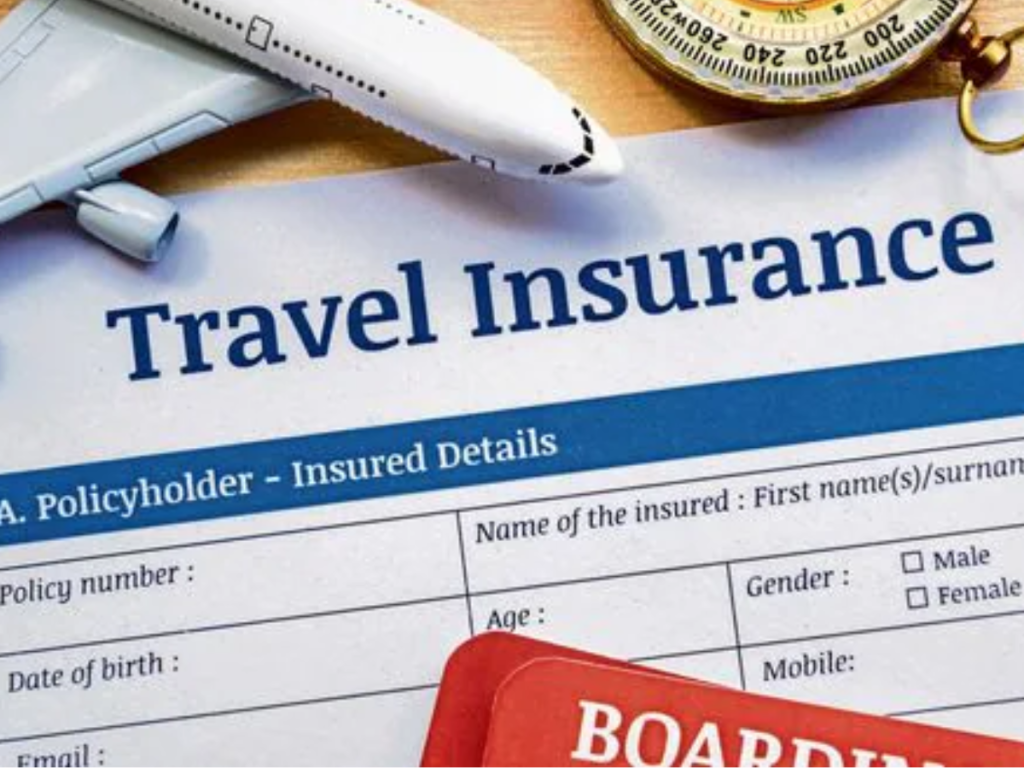Introduction
In an increasingly unpredictable world, the excitement of planning a vacation or a business trip is often shadowed by unforeseen disruptions—flight cancellations, delays, lost luggage, or even sudden illness. For decades, travel insurance was viewed as an optional expense, a luxury for the overly cautious. But today, it is a critical component of responsible travel planning. Whether you’re embarking on a cross-country adventure or a quick overseas business trip, travel insurance provides a safety net that can save you from substantial financial loss, emotional stress, and logistical nightmares.
The New Normal of Travel Disruptions
Air travel used to be predictable. While delays and cancellations occurred occasionally, they were exceptions, not norms. However, post-pandemic realities have reshaped the airline industry. Staffing shortages, changing weather patterns, geopolitical tensions, and lingering health crises have made flight disruptions alarmingly common. According to recent airline industry data, flight cancellations and delays have risen significantly over the past two years. Thousands of passengers have been stranded, with many incurring out-of-pocket expenses for food, accommodations, and rebooking fees.
For instance, consider the scenario of a family flying internationally for a long-awaited vacation. A last-minute cancellation forces them to rebook flights at inflated prices or even cancel hotel reservations that are non-refundable. Without travel insurance, these costs fall squarely on their shoulders. With travel insurance, however, they could receive compensation for rebooking fees, accommodation expenses, and even lost vacation days.
Health Emergencies Abroad: A Costly Affair
Another compelling reason why travel insurance is essential is the risk of medical emergencies. Falling ill while traveling is a stressful experience, particularly when in a foreign country where language barriers, unfamiliar healthcare systems, and exorbitant medical fees can turn a minor issue into a major crisis. Something as simple as food poisoning or a sprained ankle could result in unexpected medical bills. Worse yet, a serious medical emergency requiring hospitalization, surgery, or medical evacuation can cost tens of thousands of dollars—amounts that most travelers are unprepared to pay out of pocket.
Many travelers mistakenly assume that their domestic health insurance will cover them overseas. Unfortunately, this is rarely the case. Most standard health insurance policies offer limited or no coverage abroad. Travel insurance with medical benefits fills that gap. It covers emergency medical expenses, doctor visits, hospital stays, medications, and in some cases, even emergency evacuation back to your home country. This coverage is not only financially prudent but could also be life-saving in situations where immediate, quality medical care is critical.
Trip Cancellation and Interruption: A Safety Net
Sometimes, the problem doesn’t lie with the airline or the traveler’s health but with unexpected personal emergencies. Imagine needing to cancel a trip due to a family member’s illness, a natural disaster in your destination, or an unavoidable work conflict. Trip cancellation and interruption coverage can reimburse you for pre-paid, non-refundable travel expenses such as flights, hotel bookings, tour packages, and more.
In the absence of travel insurance, canceling a trip can mean accepting a significant financial loss. But with trip cancellation coverage, travelers can recover a substantial portion of their investment. Similarly, if your trip is cut short due to an emergency at home or a crisis at your destination, interruption coverage can help with costs incurred due to early departure or rearranged travel plans.
Lost, Delayed, or Damaged Baggage: More Than an Inconvenience
Baggage mishaps are another unfortunate reality of modern travel. It’s more than a minor inconvenience when you arrive at your destination only to discover your luggage didn’t. Essential items such as medication, clothing, and electronics may be delayed for days—or lost altogether. In such situations, travel insurance can offer baggage delay coverage, allowing you to purchase essential items while you wait. If your luggage is lost or damaged, you can file a claim for reimbursement.
Baggage issues can derail travel plans, especially for business travelers or those attending special events. Travel insurance ensures you’re not left scrambling to replace important items at your own expense.
Travel Delays and Missed Connections
Travel delays can lead to a cascade of problems: missed connections, extra nights in hotels, and the purchase of new flights. These expenses can add up quickly and often aren’t covered by airlines, especially if the delay was caused by weather or air traffic control issues. Travel insurance can provide reimbursement for meals, lodging, and transportation expenses due to long delays. It can also assist with rebooking flights and even provide coverage if you miss a connecting flight through no fault of your own.
For travelers on tight schedules—those attending weddings, conferences, or cruises—a delay can mean missing the main event. Travel insurance provides peace of mind by softening the blow of missed opportunities and providing financial relief.
Emergency Assistance Services
Most comprehensive travel insurance plans include 24/7 assistance services. These services can help you find the nearest hospital, coordinate care, rebook canceled flights, or even offer translation services in case of a medical or legal emergency. In high-stress situations, having professional support available at all times can be invaluable.
Imagine being stuck in a country where you don’t speak the language and need urgent medical attention. A good travel insurance provider will offer multilingual support to coordinate care and communicate with local medical staff. This level of support goes beyond financial reimbursement—it’s about ensuring your safety and well-being.
COVID-19 and the Changing Landscape of Travel
The global COVID-19 pandemic underscored the necessity of travel insurance. With constantly shifting travel restrictions, mandatory quarantines, and the ever-present risk of infection, travelers have had to rethink how they plan trips. Many travel insurance policies now include COVID-19 coverage, which may reimburse expenses related to testing, quarantine, and treatment if you test positive during your trip.
Moreover, governments and airlines are increasingly recommending or requiring proof of travel insurance for entry into certain countries or to board international flights. What was once an option is quickly becoming a requirement, further solidifying the role of travel insurance in modern travel planning.
Peace of Mind and Financial Protection
One of the most overlooked benefits of travel insurance is peace of mind. When you’ve invested your hard-earned money into a vacation or a critical business trip, knowing you’re protected against various uncertainties provides a sense of security. Whether it’s a sudden illness, a lost passport, or a civil unrest alert, travel insurance acts as your backup plan.
This emotional and mental comfort is particularly valuable in today’s climate. As global travel becomes more complex and unpredictable, the assurance that someone has your back—financially and logistically—allows you to enjoy your journey with confidence.
What to Look for in a Travel Insurance Policy
Choosing the right travel insurance policy is as important as deciding to get one. Here are some key features to consider:
- Medical Coverage: Ensure it includes hospitalization, doctor visits, prescriptions, and emergency evacuation.
- Trip Cancellation/Interruption: Look for broad coverage that includes work-related issues, health concerns, and natural disasters.
- Baggage Coverage: Protects against lost, stolen, or delayed luggage.
- Travel Delay Coverage: Reimburses costs associated with long delays or missed connections.
- COVID-19 Coverage: Essential for today’s travel climate.
- 24/7 Assistance Services: Access to support when you need it most.
It’s important to read the fine print and understand what’s covered, what’s excluded, and how to file a claim. Some plans may also offer add-ons for specific needs, such as adventure sports coverage or high-value electronics protection.
Real-Life Scenarios That Prove the Value of Travel Insurance
Let’s take a look at real-life examples where travel insurance made all the difference:
- Medical Emergency in Bali: A traveler fell ill with severe gastroenteritis and needed hospitalization. The bill was over $8,000. Her travel insurance covered all medical expenses and arranged her safe return home.
- Missed Cruise Connection: A couple’s flight to Miami was delayed, causing them to miss their cruise departure. With interruption coverage, they were reimbursed for missed days and rebooked onto the next port of call.
- Lost Baggage During Honeymoon: A newlywed couple lost their baggage en route to Italy. Their insurance covered emergency purchases, allowing them to enjoy their honeymoon stress-free.
These are not rare exceptions—they are everyday occurrences in the world of travel. Without insurance, each of these incidents could have turned into a financial nightmare.
Travel Insurance Is a Small Price for Big Protection
The cost of travel insurance is often minimal compared to the total cost of a trip—typically around 4-10% of your trip’s value. Yet the protection it offers far exceeds that percentage. It’s a small investment that can yield significant returns when things don’t go as planned.
From canceled flights and natural disasters to sudden illnesses and baggage nightmares, travel insurance offers comprehensive protection. In many ways, it’s no longer just a safety net—it’s a travel essential.
Conclusion: Make Travel Insurance a Habit, Not an Afterthought
In today’s world, where uncertainty is the only certainty, travel insurance should be viewed not as an optional add-on but as a fundamental part of trip planning. It protects your time, money, health, and sanity.
Whether you’re a frequent flyer or a once-a-year vacationer, the risks of travel disruptions, illness, and emergencies are real and increasingly common. The smart traveler is not just one who finds the best flights and hotels, but one who plans for the unexpected.
Travel insurance doesn’t just refund money—it restores peace of mind. And in an age of volatility, that’s something no traveler should be without.

